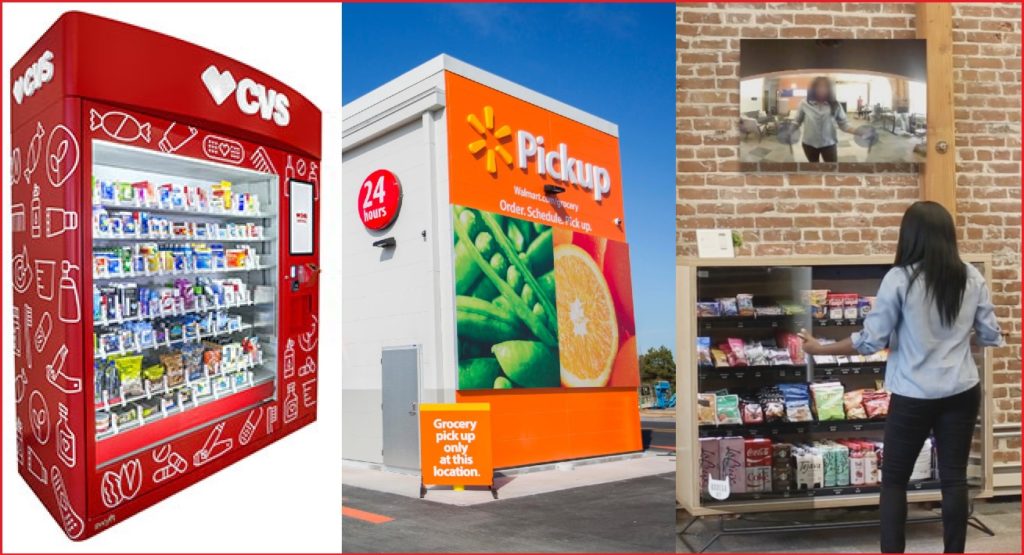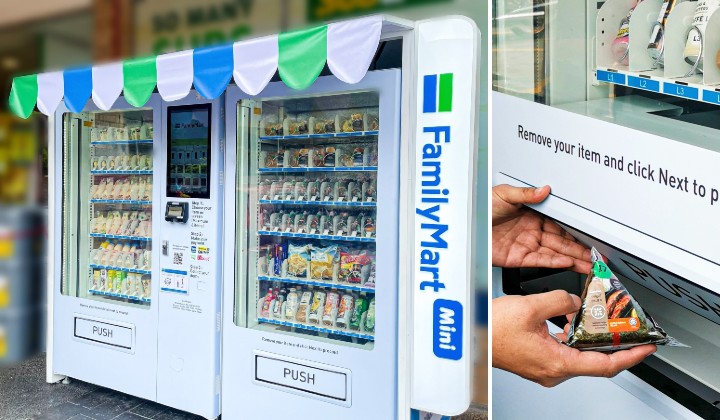Retail is undergoing a seismic shift, and traditional convenience stores are at a crossroads. As consumer preferences lean toward hyper-convenience, automation, and contactless shopping, a new contender is emerging—the decentralized retail model powered by mini vending machines.
What if, instead of relying on large convenience stores, we had smart mini vending machines spread across urban and suburban areas, offering everyday essentials with zero staffing costs, lower overhead, and 24/7 accessibility? This article explores whether mini vending machines can replace convenience stores, diving into emerging trends, technology-driven innovations, and the economic and psychological factors that could shape the future of retail.
The Rise of Decentralized Retail: What It Means
Decentralized retail refers to a system where retail operations are distributed across multiple small-scale, automated nodes (like mini vending machines) instead of being concentrated in traditional brick-and-mortar stores.
This concept is already gaining traction through:
- Smart vending machines that go beyond snacks, offering everything from electronics to fresh produce.
- Automated retail kiosks that reduce human intervention.
- AI-powered micro-stores that analyze demand patterns and optimize product selection in real-time.
Why It’s Important:
- Eliminates the need for large commercial spaces.
- Provides hyper-localized retail where customers need it most.
- Reduces reliance on human labor, making operations cheaper and more efficient.
- Offers a contactless shopping experience, aligning with post-pandemic consumer preferences.

The Technology Behind Smart Mini Vending Machines
For mini vending machines to replace convenience stores, they need more than basic automation. AI, IoT (Internet of Things), and blockchain-powered inventory management are key to making these machines smarter and more efficient.
Key Innovations Driving the Shift:
AI-Driven Restocking & Demand Prediction
Smart vending machines analyze real-time sales data and predict demand.
Inventory is restocked only when needed, reducing waste and inefficiencies.
Contactless & Biometric Payment Systems
- NFC (Near Field Communication) and facial recognition for ultra-fast checkouts.
- Crypto and digital wallets like Apple Pay, Google Pay, and blockchain-based transactions.
- Remote Maintenance & Self-Healing Systems
- IoT sensors alert operators to maintenance issues before they become critical.
- Some machines can self-diagnose and fix minor malfunctions autonomously.
- Hyper-Personalization Through AI
- Machines track consumer habits and suggest personalized product recommendations.
- AI-powered dynamic pricing adjusts product costs based on demand and supply.
Economic & Operational Advantages Over Traditional Convenience Stores
The biggest advantage of replacing convenience stores with mini vending machines is cost savings. Here’s how the numbers compare:
| Factor | Traditional Convenience Store | Mini Vending Machines |
|---|---|---|
| Rent | High (prime locations needed) | Low (small footprint) |
| Staffing Costs | High (multiple employees) | Zero (fully automated) |
| Operating Hours | Limited (not always 24/7) | 24/7 availability |
| Inventory Management | Manual restocking & waste | AI-driven optimization |
| Theft & Shrinkage | Common | Minimal (secure access) |
Key Takeaways:
- Mini vending machines cut costs by up to 70% compared to a traditional convenience store.
- Automation reduces human error and enhances efficiency.
- Rent and real estate expenses become almost negligible.
The Psychological Appeal: Why Consumers Prefer Mini Vending Machines
Apart from economic benefits, mini vending machines appeal to consumer psychology in surprising ways:
1. Instant Gratification & Decision Fatigue Reduction
- Consumers are overwhelmed by excessive choices in large stores.
- Mini vending machines offer curated selections, making purchasing decisions faster and easier.
2. The Trust Factor: Hygiene & Contactless Shopping
- Post-pandemic shoppers are more comfortable with no-contact transactions.
- Automated vending reduces human interaction, making customers feel safer.
3. The Gamification of Retail
- Interactive vending machines can offer rewards, discounts, and surprise deals.
- Smart vending personalizes experiences, keeping customers engaged.

Real-World Examples of Mini Vending Machines Disrupting Retail
Japan’s Automated Retail Boom
Japan has over 5 million vending machines, selling everything from hot meals to electronics. Companies like Dydo and Acure are already testing AI-powered vending solutions that restock themselves and predict consumer demand.
Amazon’s Just Walk Out vs. Smart Vending
While Amazon’s cashier-less stores are revolutionizing retail, smart vending achieves similar goals with lower costs. These machines bring “grab-and-go” convenience without requiring an entire store infrastructure.
Startup Spotlight: Stockwell AI
Stockwell AI (formerly Bodega) experimented with smart vending machines for urban areas, offering quick access to everyday essentials. Despite initial challenges, the concept inspired a wave of innovation in decentralized retail.
The Future: A Hybrid Model of Convenience Stores & Mini Vending Machines
While mini vending machines might not fully replace convenience stores immediately, a hybrid model is more likely. Imagine:
- Decentralized micro-vending hubs in residential buildings, transit stations, and workplaces.
- Larger convenience stores evolving into restocking and service centers for vending networks.
- Retail giants leveraging vending machines for last-mile distribution.
This hybrid model merges traditional retail with AI-powered automation, creating a more efficient, cost-effective, and consumer-friendly ecosystem. Read More>>>>
The Future of Retail is Smaller, Smarter, and More Automated
Mini vending machines are poised to disrupt the retail industry. By offering lower costs, higher efficiency, and an improved consumer experience, they present a viable alternative to convenience stores.
Final Thoughts:
Decentralized retail can increase accessibility and reduce operational costs.AI, IoT, and automation make vending machines smarter than ever.While full-scale replacement isn’t immediate, a hybrid model is the next step.
As technology advances, the idea of a world without convenience stores isn’t far-fetched—it’s already beginning. The real question is, how soon will businesses and consumers embrace this shift?
1 thought on “Decentralized Retail: Could Mini Vending Machines Replace Convenience Stores?”